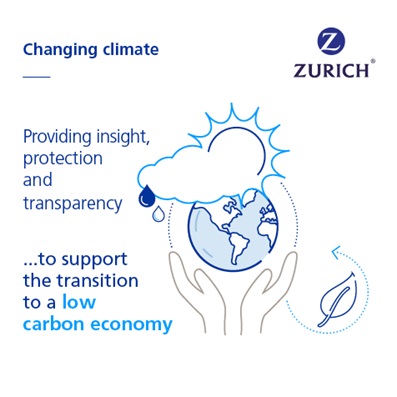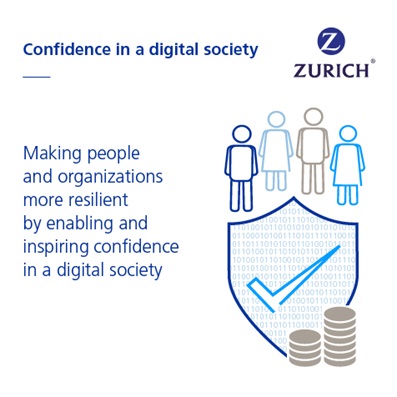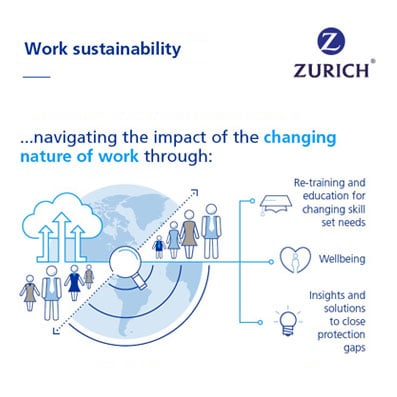
Investing in local communities
Our strategic priorities
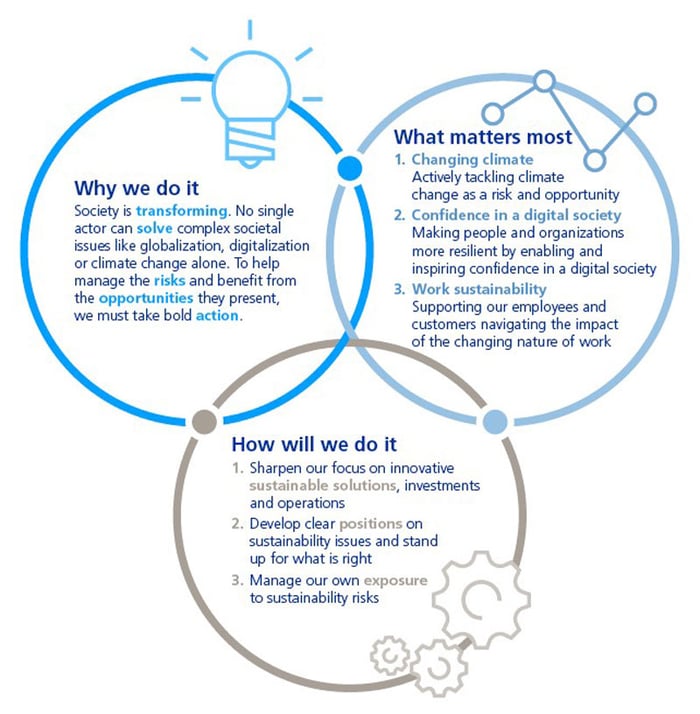
At its core, insurance has always focused on helping others overcome hardships, conquer new challenges or protect what’s important to them. For Zurich, that core purpose has been evident throughout our history. As early as the 1870s we were insuring workers facing new risks and injuries as part of the Industrial Revolution. We began offering car liability insurance for a new type of transport - automobiles - 10 years before the first Ford Model T left the factory line. In the 1920s we became the first European life insurer to offer free medical exams to policyholders.
We are proud of the role we play in ensuring the sustainable future of every customer we serve, throughout the years right up to today. But looking ahead, given the complexity and scale of challenges facing our modern world, this is not enough. We have the expertise, capability and spirit to contribute even more. That is why we decided to reset our sustainability ambition at the end of 2017 and aim to become one of the most sustainable and impactful businesses in the world.
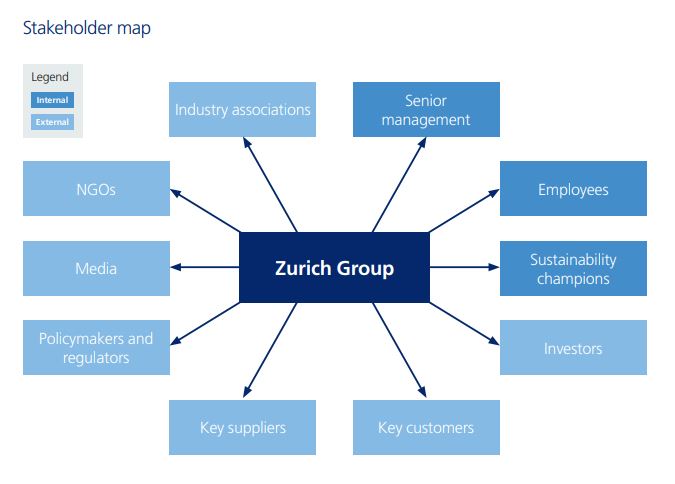
A critical part of developing our sustainability ambition is to identify and prioritize issues of material importance to the company and its stakeholders. In 2018, Zurich launched an evidence-based data-driven materiality assessment leveraging our internal risk expertise, deep engagement with stakeholders, and insights generated from state-of-the-art big data tools to identify and prioritize our most material ESG issues. Our approach is based on international best practice standards including leading sustainability indices and the Global Reporting Initiative (GRI) G4 guidelines. Through combining these three sources of internal and external feedback, our materiality assessment follows these five steps:
1. Identify key stakeholders groups to engage
- Zurich identified 10 key stakeholder groups to include in our data-driven materiality assessment.
2. Consulting stakeholders to identify ESG issues of concern
- Engaged with stakeholders through interviews, meetings and surveys to identify which ESG issues affected them the most and those which they thought were most important for Zurich to address;
- Carried out research and benchmarking;
- Identified 21 ESG issues of concern for the insurance sector in general and to Zurich specifically.
3. Evidence-based and data-driven prioritization of most material ESG issues
- Rigorous evidence-based approach was used to prioritize Zurich’s most material issues using artificial intelligence and big data through a specialized business intelligence software tool called Datamaran®;
- Various sources used as individual inputs into a custom-made model to build an evidence-based materiality matrix.
4. Validation of material issues by risk management specialists and our Sustainability Leaders Council
- Formal verification by Zurich’s internal team of risk management specialists and our Sustainability Leaders Council.
5. Ongoing monitoring, measurement and adjustment
- Each of our top material issues will have impact targets and specific management approaches that contribute to our overall sustainability ambition.
Zurich’s materiality assessment process evaluates the perceived importance of each ESG issue to Zurich’s future success and then maps the results onto a materiality matrix. The y-axis indicates the perceived importance to our external stakeholders, while the x-axis indicates the perceived importance internally to Zurich. The issues in the top right, which are important to both our stakeholders and to our business, constitute Zurich’s strategic sustainability focus areas. Fair & inclusive workforce and workforce development are addressed by our ’supporting a global workforce-in-transition’ pillar. Issues such as digitalization & innovation, and data privacy & security are addressed via our ‘inspiring confidence in an increasing digital society’ pillar. And climate change and natural disasters issues are addressed by our ‘addressing the impacts of a changing climate’ pillar. Read more about these three pillars in the section about our sustainability commitment below.
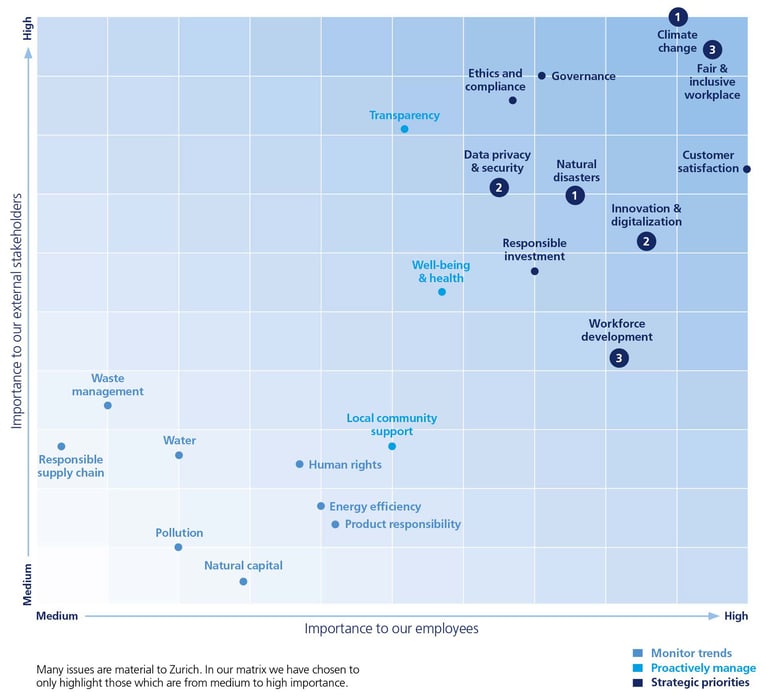
Our sustainability commitment
We have identified three transformational themes that we believe are material for Zurich’s future.
